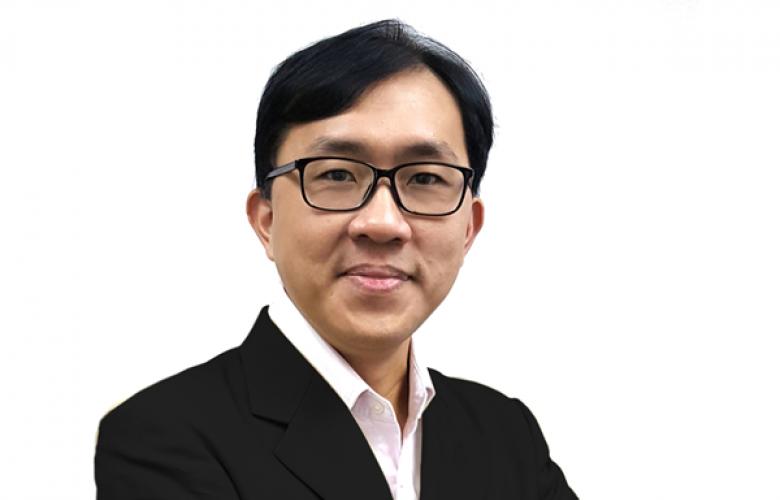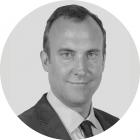Get to know Ku Swee Yong International Property Advisor Singapore
Contact
Get to know Ku Swee Yong International Property Advisor Singapore
SCHWARTZWILLIAMS talks to International Property Advisor's CEO Ku Swee Yong about how his background as a market analyst adds value for investors in Singapore property.
With a background in banking and real estate, working for companies such as Société Générale, Savills Singapore and Far East Organization, Ku Swee Yong established boutique property brokerage and consultancy International Property Advisor Pte Ltd in 2010, servicing high net worth individuals. IPA aims to bridge the knowledge gap between the banking and real estate industries. In addition to his agency, Swee is co-founder of HugProperty.com and has published 4 books on the property market and is a regular market commentator on news outlets in Singapore. He is also an adjunct lecturer in the National University of Singapore's Department of Real Estate.
How did you get into the real estate industry?
It was by accident. In 2003 I was a director of the Singapore Tourism Board office in Jakarta, where property developers from Singapore were increasingly holding property launch events. I took the opportunity to promote Singapore as a tourist destination by supporting developers’ exhibitions with marketing collateral and assigning a colleague or two to assist the exhibitors with answers to general enquiries about Singapore’s education or medical tourism. Then in mid-2004, I joined Far East Organization, Singapore’s largest developer, thinking at that time that when I promote Far East Organization’s properties in Indonesia, I am also driving up tourist numbers or foreign-investor numbers.
What are some of the highlights from your career?
Being able to speak up about my views on the property market and being vindicated when the world thinks I am wrong.
I am a property broker and I walk around viewing properties with clients, yet I am also a market analyst and am constantly researching about global markets. Of course I have to pay attention to what happens in Singapore, my own backyard. As an active broker who walks the ground and is also researching the market, I am (i) an analyst who has direct feedback from clients on the ground and (ii) a broker who has a lot of data in my head. That differentiates me from 99.9% of the other brokers and researchers.
My first career highlight came in mid 2007. In late 2006 I worked for Savills and was managing the high net worth client group. The highest price per square foot had just crossed S$3,000 around 3Q2006, while a combination of factors pointed to an imminent jump in residential prices. I worked with our research team and released our forecast that Singapore residential prices would cross S$4,500psf (up 50%) within 3 years.
I never imagined how much feedback I would get from the investment public, government policy makers, home buyers and developers who claimed that I was talking up the market. Some investors who had not jumped onto the investment bandwagon were unhappy, suggesting that my research would lift prices too quickly and they would miss out.
Lesson: I learnt to be steadfast and stand firm, especially having checked and re-checked my numbers and assumptions. Regardless of how true we are as independent market commentators, there are people who will be unhappy.
As it turned out, our forecast was too conservative. By mid-2007, a penthouse apartment in the St Regis Residences exceeded S$4,500psf.
In November 2013, I started calling for a sell on the Singapore residential market. Being the first person to do so, I was of course widely labelled the most negative person in town.
Since then, we have had the longest streak of losses: the private residential price index for Singapore has dropped for 15 consecutive quarters since mid2013. This is only a 13% drop over 3 years, but it is a consecutive drop nonetheless, with no signs of letting up any time soon, due to persistent oversupply and low population growth.
What are the biggest issues facing the industry in your market at the moment?
As is happening in the rest of the world: technology. Home sharing, office sharing, peer-to-peer or buyer-to-seller or tenant-to-landlord applications… these apps and trends will reduce the role of middlemen. Therefore, we need to add more value for clients (buyers, sellers, tenants or landlords) with services that robots or apps cannot provide, or with knowledge that is too complex for robots and apps to provide, such as international transactions across legal/language boundaries or complex deals involving corporate structures, wills/estate or tax.
How has the industry changed in the time you have been involved with it?
The level of professionalism has improved tremendously. About 7 years ago (2010) the Singapore government introduced the Council of Estate Agencies and since then, all property agents, as well as the agencies they represent, have to be licensed. And in order to qualify for the annual renewal of licences, each practising property agent has to clock in at least 6 hours of Continuing Professional Development courses. While the costs of compliance with all the new rules have increased, we can be proud that the agents who remain today are better educated and committed to their jobs.
Are there any changes you would like to see in the industry over the next two to five years?
I would like to see more integrity in the industry; more agents who are willing to champion the right products and reject shoddy or questionable products. I also wish that clients (consumers or institutions, buyers/sellers/tenants/landlords) would pay for good service. Appreciate that the services of a professional agent are similar to that of a doctor or a lawyer: they make everything seem so easy.
What advice do you have for people who are just starting out in similar careers?
I hope that new entrants are willing to consider all aspects of the job of a real estate agent/broker/consultant. This job is not all 'glam and bling bling'. Sometimes we need to walk across tough terrain when surveying new land sites for development or we need to get into the bowels of commercial buildings and factories. Furthermore, we need to understand the risks of misrepresentation or leading our clients down unprofitable investments. A well qualified property broker would need to have a little bit of a 'travel agent, lawyer, banker, accountant, engineer, architect, socialite/networker' in them. So new entrants have to be prepared to learn widely.
What do you believe is a unique factor of doing business in your market?
Singapore is unique in that public housing units make up three quarters of the 1.35 million housing units and private residences only account for a quarter of the stock. New public housing units sold by the government do not require property agents and in the resale market for public housing there are many rules and restrictions (but that also means the process is highly automatable).
What is your favourite holiday destination in Asia?
Japan. I hope to spend more time roaming the entire country and walk on less trodden paths.
What’s your outlook for your sectors for the next year?
The Singapore market is generally oversupplied in all segments for 2017 and 2018: office, retail, residential, factory, hotels. We may expect higher vacancies and weaker rentals. Many of us are waiting for a senior government convened “Committee for the Future Economy” to release their proposals which we hope could propel Singapore further. Adding more high value jobs to the economy would mean that the real estate sector can enjoy increased demand from immigration and foreign talent who come on employment passes. While we do not expect a magic pill, we hope for the best outcome that can lift demand significantly within the next 3-5 years.
Where would your next purchase be?
Either Karuizawa or Tokyo in Japan, or Perth or Melbourne in Australia.
More from Swee Yong
Singapore - Two tier housing market likely










